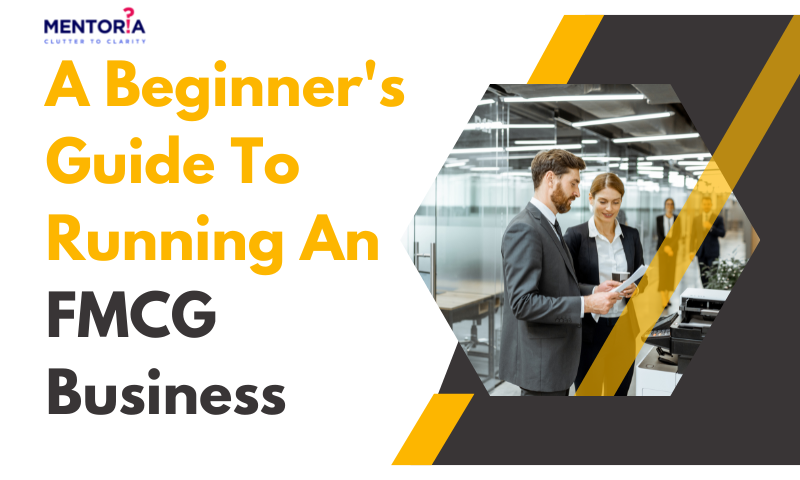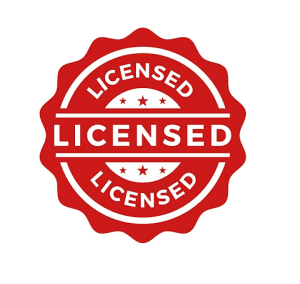A Beginner’s Guide To Running An FMCG Distribution Business

Are you an entrepreneur with a dream of owning your own business? Do you love the idea of creating and selling products? Do you already have ideas which can make it to the market? If so, you may be interested in starting an FMCG products distribution business. But what is an FMCG business exactly?
Well, an FMCG distribution company is a fast-paced venture that provides consumers with everyday necessities. Imagine being at the forefront of supplying homes and businesses with items that make people’s lives more comfortable and convenient. From toothbrushes to snacks, and shampoo to cleaning products, you’ll be the link between manufacturers and customers, maintaining a consistent supply of essentials. It’s a fast-paced industry that needs creativity, strategic thinking, and a deep desire to provide value to all stakeholders. FMCG has wonderful business potential if done effectively. So what are you waiting for? Get ready to join the fast lane of the FMCG distribution industry.
Don’t know how to start? Read on to find out! Get ready to see your products fly off the shelves!
What Is An FMCG Distribution Business And Why Is It A Good Idea?
An FMCG distributor is a person who connects the producer and the retailer. The role of an individual is to promote the products of a specific FMCG company that has decided to sell its products in specified areas.
The business involves purchasing these goods from manufacturers or wholesalers, storing them in a warehouse, and then selling them to retailers, supermarkets, or directly to consumers. The emphasis is on delivering products to market quickly and guaranteeing a continuous supply to match consumer demand. Now you might be wondering why this is a good idea:
- High demand: FMCG products are always in high demand because they are necessary commodities that people buy on a regular basis.
- Wide product range: They offer a diverse assortment of items, allowing them to reach a bigger customer base.
- Margins: FMCG products often have large margins, providing distributors with a favourable return on investment.
- Efficient logistics: An efficient distribution system can help to reduce costs while increasing profits.
- Continuous sales: The regular buying cycle of FMCG products guarantees the distributor has a consistent revenue stream.
An FMCG distribution business can be a profitable investment for entrepreneurs with a planned approach and an emphasis on efficiency and customer happiness. Now let’s dive right in and see how this can be done. Ready?
Baby Steps For Your Business
Before you become an FMCG distributor in India, here are a few requirements you’ll have to consider:
1. Conducting market research: You can start by determining your target clients’ geographic region, age, income, and lifestyle. Investigate consumer purchasing behaviours, such as the things people buy, where they buy them, and how frequently they buy them. Analyse FMCG sales data to find the most popular products and the market’s potential size. Examine your competitors’ strengths and shortcomings, pricing methods, and distribution networks. Keep up with industry developments, such as new goods, regulatory changes, and technological advancements.
Even though this sounds like a lot, it can be a fun task and you will have a greater grasp of your target market and the industry after completing extensive market research, allowing you to make informed decisions about product selection, pricing, and distribution tactics.
2. Pick product lines: You will have a list based on your study, with an emphasis on FMCG products that are in great demand and have a proven track record of success. Here are some of the top products:
- Food and beverages: Snacks, beverages, packaged food, and cooking ingredients
- Personal care: Shampoo, soap, toothpaste, razors, and other toiletries
- Household goods: Cleaning supplies, paper products, and home appliances
- Beauty products: Makeup, skincare, and hair care products
- Health and wellness: Vitamins, supplements, and over-the-counter medication
- Baby products: Diapers, wipes, and baby food
- Pet supplies: Dog food, toys, and grooming products
- Tobacco products: Cigarettes and other tobacco products
- Confectionery: Candy, gum, and chocolates
- Beverage/alcohol: Beer, wine, and spirits.
These products sure have a successful track record and are in high demand among consumers. However, market research is necessary to establish which products are most in need in your specific target market.
3. Develop a business plan: Give a quick explanation of your company’s goals, target market, and financial projections. Describe your sales and marketing strategies, including target demographics, advertising plans, and distribution routes. You may construct a road map for success and receive capital from investors or lenders by creating a comprehensive business plan. Create a business plan that outlines your FMCG distribution company’s entire vision. It allows you to stay on track and manage your business.
You can form your company as a private limited company, partnership, or sole proprietorship. Obtain the licences and permits required to run your business. Rent or purchase a warehouse space to store and manage your products. Arrange for transportation to transport products from suppliers to your warehouse and from your warehouse to customers.
4. Secure funding: Raise capital to purchase inventory and cover operational costs. It’s essential to carefully consider your options and choose the funding source that best fits your needs and goals. Be sure to have a strong business plan and financial projections to present to potential investors or lenders. Here are some options:
- Personal savings: By utilising your own funds, you have complete control over the financial decisions of your business and can avoid the potential pitfalls of being in debt or seeking outside investors.
- Business loans: Apply for a loan from a bank or alternative lender.
- Crowdfunding: A crowdfunding platform is used to raise funds from a big number of people.
- Angel investors: Seek financing from high-net-worth individuals interested in investing in start-ups as angel investors.
- Venture capital: Seek investment from venture capital firms that specialise in funding high-growth businesses.
- Government funding: Look into and apply for government grants for small enterprises.
- Partnerships: Consider creating a collaboration with another company or individual who possesses complementary talents and resources.
It’s also crucial to comprehend the terms and conditions of each funding source and be prepared to repay the funds or give up a percentage of your company’s equity. Once the funds are secured, negotiate minimum order quantities, lead times, and payment arrangements with suppliers.
5. Identify sales channels: Launching an FMCG distribution firm is no easy feat, but one critical aspect to consider is identifying your sales channels. This can make or break your business, as the way you sell your products can directly impact your revenue, customer base, and overall success.
When it comes to FMCG products, there are two main sales channels: direct-to-consumer sales and retail partnerships. Direct-to-consumer sales involve reaching out to customers through various channels like online marketplaces, social media, and advertising to promote and sell your items. This method offers you more control over the sales process and allows for direct engagement with customers to get feedback on your products. It’s like having a personal shopper for every customer!
On the other hand, retail partnerships involve collaborating with established retail brands, supermarkets, and other comparable outlets to distribute your products. This option can give you a wider reach to customers, as customers are more likely to trust established retail brands. It’s like having your products showcased in a big fashion event!
When deciding which sales channel to choose, there are many factors to consider, such as your target market, product pricing, distribution expenses, and marketing budget. But what if you combined both sales channels? By using both direct-to-consumer sales and retail partnerships, you can reach a larger audience and enhance revenue possibilities. It’s like having the best of both worlds!
6. Hiring a team and implementing logistics and storage solutions: Recruiting competent sales and marketing employees is critical to the growth of your company. These experts can assist you in reaching and engaging your target market, promoting your products, and driving sales.
Implementing logistics and storage solutions can assist you in ensuring efficient and effective inventory management, minimising waste and losses, and meeting client demand on time. Consider investing in technology solutions, such as inventory management software, to simplify and optimise your operations.
When it comes to running a successful distribution business, one critical factor to consider is the location. You might think that location doesn’t matter as long as you have a space to store your inventory, but the truth is that the location of your warehouse can have a significant impact on the success of your business. But location isn’t just about finding a space that meets your storage needs. It’s also about finding a location that is easily accessible to your suppliers and customers. If you’re too far away from your suppliers, you might experience delays in getting your inventory, which could lead to lost sales and dissatisfied customers.
7. Launch marketing campaigns and evaluate performance: To reach your target market and establish brand recognition, consider starting marketing campaigns using a number of channels such as advertising, events, social media, and email marketing. To ensure your company’s success, you must constantly evaluate sales, expenses, and customer feedback. This data can assist you in making adjustments and adjusting your plans as needed to meet your objectives.
Time To Let Your Business Shine!
By following the steps outlined in this blog and continuously evaluating your performance, you can position your business for growth and success in the highly competitive FMCG industry. If you need any help with understanding your own strengths and limitations better then Mentoria is here for you!
Sign Up for Mentoria – India’s Most Reliable Career Discovery Platform. Mentoria promises to handhold you throughout your career discovery journey – from the time you sign up until you get into a career you love.











